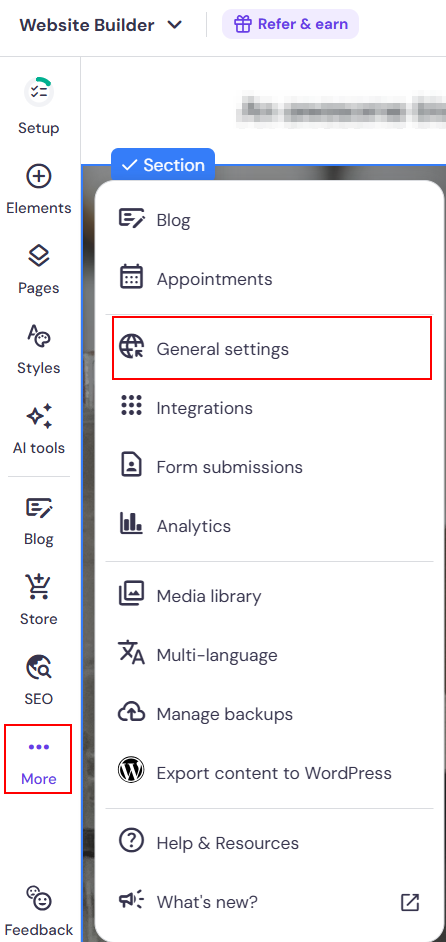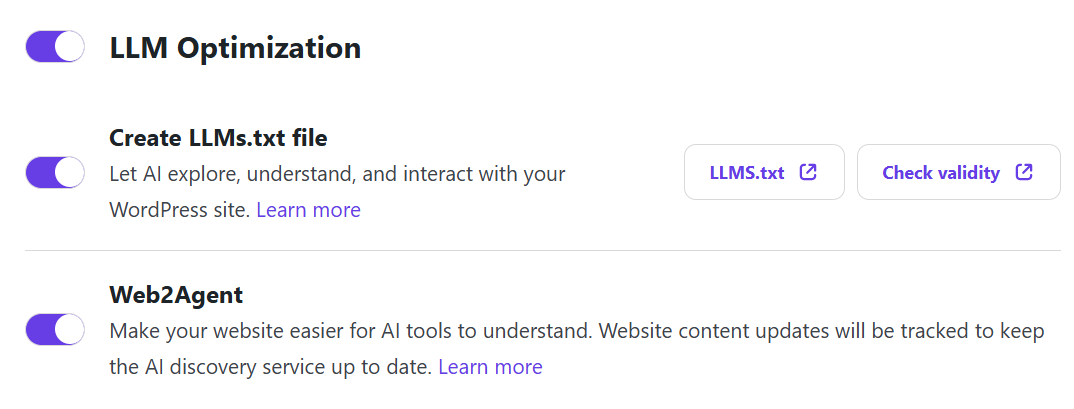In Hostinger Website Builder (HWB) and WordPress, you can enable LLMs.txt file creation for your website.
LLMs.txt is a new standard that helps large language models (LLMs) — like ChatGPT or other AI assistants — better understand your website’s structure and most important content. More information about it can be found here.
Enabling this feature can help AI tools navigate your site and represent your content more accurately when people ask about it.
What is LLMs.txt?
Think of LLMs.txt as a companion to robots.txt and sitemap.xml:
- robots.txt tells crawlers which pages they can or cannot access.
- sitemap.xml lists all your pages for search engines.
- llms.txt provides a curated guide for AI systems, highlighting your key pages and describing what they’re about.
When AI systems look at your site, they can use LLMs.txt as a shortcut to the most essential information. More information about it can be found here.
Why should you enable it?
Here are the main benefits:
- More accurate AI answers – AI assistants can pull the right content from your site, instead of random or outdated pages.
- Highlight key pages – You highlight what matters most (product pages, about info, guides).
- Future-proofing – While still a proposed standard, more AI tools are expected to adopt llms.txt. Enabling it now puts you ahead.
- Safe and lightweight – It doesn’t change your public site; it just adds an extra metadata file.
How to enable LLMs.txt
In Hostinger Website Builder (HWB)
- Go to your Website Settings.
- Open General Settings.

- Toggle on Enable LLMs.txt in Web2Agent settings.
- Publish your site.
The file will be automatically created at: https://yourdomain.com/llms.txt
In WordPress
- Go to your WordPress Admin Dashboard.
- Open Hostinger → Tools.

- Toggle on Create LLMs.txt file under the LLM Optimization section.

Your llms.txt file will be live immediately.
FAQ
Is llms.txt mandatory?
No, it’s optional. Your site works fine without it, but enabling it can help AI systems better represent your content.
Will all AI tools use it?
Not yet. This is an emerging standard, but adoption is growing. By enabling it, you’re preparing your site for the future.
Does it expose private data?
No. Only the links and descriptions from your website are included.
Can I disable it later?
Yes, you can turn it off anytime from your settings, and the file will be removed.